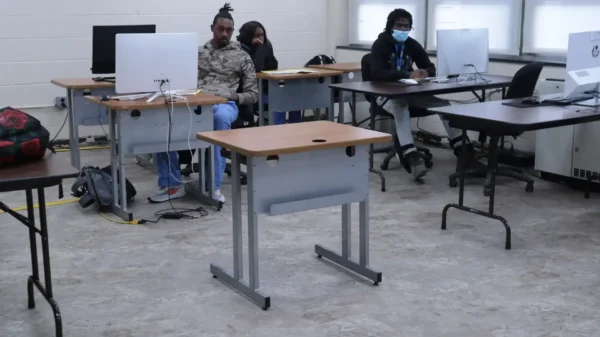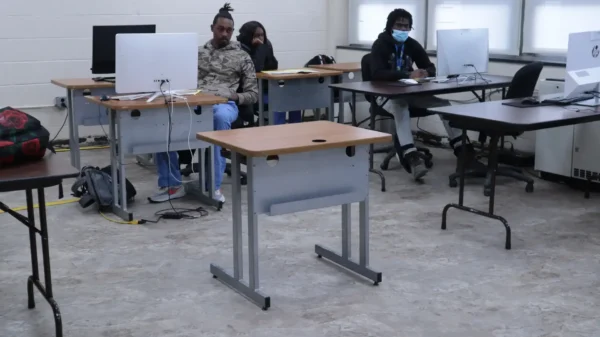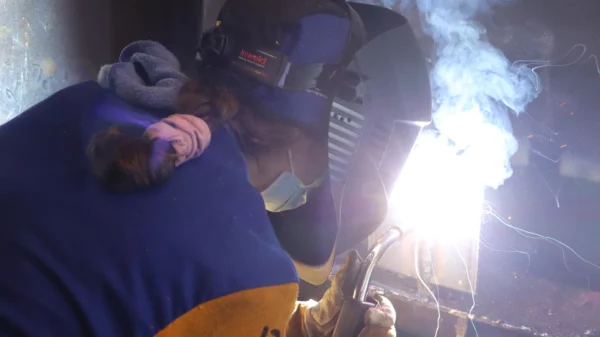Many traders are in huge demand as the requirement for more experienced labour employees proceeds to grow. There are several types of trades that you may analyze and research before selecting to enter into a trade. Trade jobs tend to be in businesses such as transportation, construction, production and maintenance, still, trades are also in career sectors like culinary crafts, healthcare and cosmetology.
How to Learn The Trade Jobs
Choosing a trade as your job path can be rewarding and exciting. There are several ways you can get into a trade. Some firms in certain industries choose to employ entry-level employees without schooling and they train them in-house. Others need certifications, an associate degree or a registered internship before hiring.
Here are a few steps you may take to kick start a successful career in the trade jobs:
1. Complete High School
The lowest requirement (education) for most trade jobs is a high school certificate. While you are in high school, you may deem taking a shop class or woodworking class through your academy or another local program. This may help you to determine what trade you would like to enter. You can also exercise some safe trade skills on your own at home to get an idea of what interests you.
2. Pick a Trade
Once you finish high school, it is time for you to decide which trade interests you most extensively. If you prefer being productive and working with your hands rather than relaxing at a desk, then you may consider more qualified trades. If you know you like to repair cars, then you may consider becoming an auto-mechanic. Skilled trade jobs wiki may directly relate to your hobbies.
For example, you may try noting down the things you prefer to do and then note down a few job descriptions that concern you next to it. Circle the things that employment and your hobbies have in common. You may end up selecting the trade that has the most in mutual with your interests.
Some other promising ways that may promote you with picking a trade are to speak to a few people who work in businesses that you are interested in, research salary and growth for each trade and review job vacancies.

3. Select an Educational Program
You may decide to go to a technical school or take certificate classes at a city college. Each trade has several requirements, and not all trades need formal education. However, taking conventional education classes can help you clear your competitive advantage over other nominees.
Many trades accept certificates rather than requiring an associate’s degree. This means you can take lessons that are quickly related to your career and earn a certificate in 2 years or less depending on the program.
It’s suggested that you research the requirements for the business you are curious about entering before you join an educational program. This way, you know the particular requirements before you start a program.
4. Obtain an Apprenticeship
The second step is to study for an internship program that allows you to improve skills while you’re trained on the job. You may find internships with the help of local trade unions, training organizations, professional unions or employment agencies and policies.
Another option you may contemplate is to apply for a registered internship program that is given through public and private sector jobs. There may be some ongoing classes that you are expected to take during your internship.
Internships typically take about 1 to 6 years for completion depending on the trade, and you can foresee learning your trade, gaining specialized skills and receiving some fee for it.

5. Get Licensed
Another article that you may require to have is a license that ensures your right to work your trade. Licensing isn’t necessary for all trades and the conditions may vary by state. Most licence exams emphasise elements such as building codes, regulations and legislation. You may have to attain a certain amount of classroom hours and on-the-job routine hours to be eligible for licensing tests.
6. Become a Journeyman
After you complete your internship and the process of learning trade is finished, you can become a journeyman. Becoming a journeyman indicates that you have passed the essential examinations and have put in sufficient on-the-job training to practice your job under your license rather than functioning under the license of a better-experienced tradesperson.
Relying on your trade, you may be required to work as a journeyman anywhere from 1 year to 5 years before you can fit as a master tradesperson. Master tradespeople can function in supervisory positions and the salary is typically improved as per your aptitude.



















